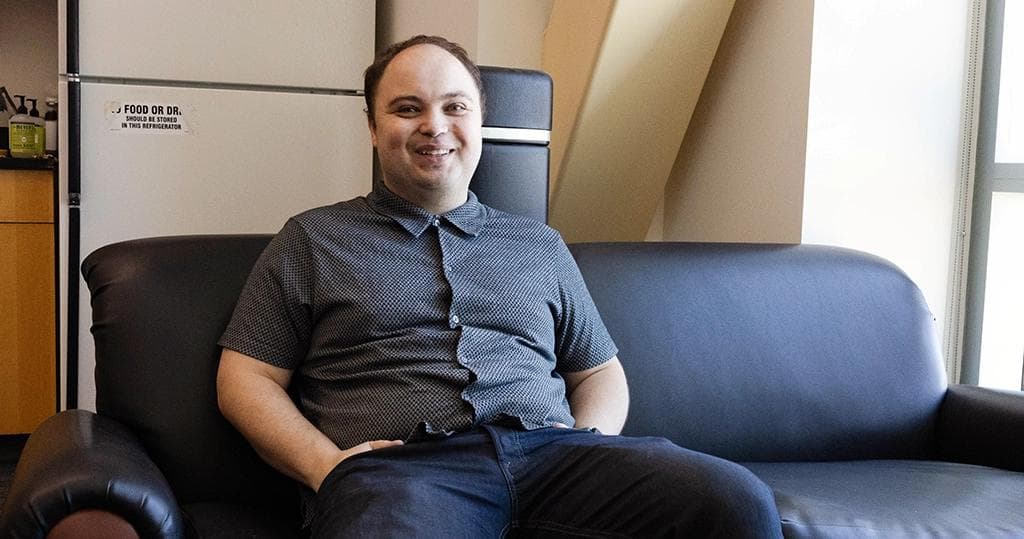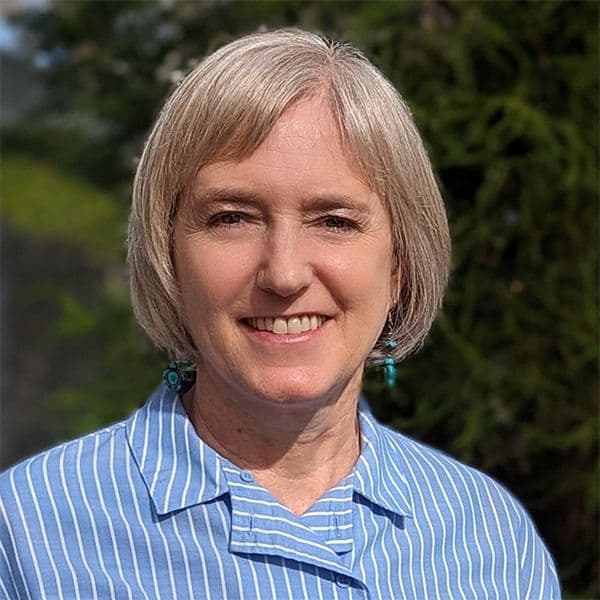News
Jul 18 '24
Student Spotlight: Ian Anderson
#AIFS

AIFS graduate student, Ian Anderson, did research at UC Berkeley as an undergraduate and worked in a wet lab at Stanford — yet neither compared to his experience in Dr. Justin Siegel's lab here at UC Davis.
When asked what has surprised him the most, Ian said that it was the speed at which research is done. Part of that is growing bacteria versus growing plants, but he also attributes it to AI advancements and the efficient way in which Dr. Siegel runs his lab.
Dr. Siegel spoke about Ian's terpene research as part of the AIFS Speaker Series and recognized him for his initiative and dedication to this project.
Following is our Q&A with Ian.
Today we’re speaking with Ian Anderson. Ian is a PhD student in Genetics and Genomics. Unlike most college students, he knew what he wanted to do from the beginning.
Q - Your undergraduate degree was in genetics and plant biology and you’ve stayed very consistent in your area of study. How did you know this is what you wanted to do?
A - Yeah, so I started college pretty late. I started in my mid 20s.
I started working right after high school, and when I decided that I wanted to go back to college, I did it because the work that I was doing, even though it was very rewarding, was pretty unfulfilling.
And primarily, I was interested in doing something that I found very fulfilling. And I knew that I loved plants, and I had a feeling that I loved doing research, and I wanted to stay kind of within the field of food.
So when I went to UC Berkeley, I knew that I wanted to do plant research, and I got into that immediately as soon as I started, and I just continued ever since.
Q - We’re happy to have you working on an AIFS project under Professor Justin Siegel. Can you describe what you’re working on now?
A - Yeah, so we use Machine Learning to study a class of chemicals called terpenes.
Terpenes are a very common chemical in all of your foods. If you think about the flavor that you kind of expect out of a lot of fruits and different foods, those are typically terpenes. So almost all of the flavors that you would see in any kind of candy that resembles a fruit, like a mango or a lemon or anything like that, that's a terpene that they've extracted from the plant, and then they put in the candy, and it makes it taste like that.
So it's very common in food. It also has a lot of health benefits.
But it's a really interesting chemical because, even though it's very diverse, they all come from one starting sub unit, which is an isoprene unit. And that lends itself to being really important for Machine Learning, because it cuts down on the amount of information that you need, it’s that you don't have to consider the starting subset. You don't have to consider the starting material, and you can only consider the enzyme that makes it, as well as the product.
Q - AI has exploded in the last couple of years, but it was already being used in research. How has AI impacted your work?
A - AI has impacted my work pretty significantly with the advent of tools like AlphaFold, from Google, which lets you model proteins very rapidly.
Before, we used to do a technique called homology modeling, which would take days if not weeks to get a new protein structure. Now with AlphaFold, we can do it in about 30 minutes. And that's allowed us to do a lot of really high throughput work.
And just overall, the speed at which we do research has increased dramatically.
Q - What has been the most surprising thing about your work here at UC Davis?
A - I think the most surprising thing coming to UC Davis was seeing just the speed at which science can be done.
Primarily, I worked directly with plants, and you have to spend a lot of time waiting for plants to grow, you have to do multiple replicates, and you can go over a year without getting any concrete data.
And just kind of the way that Professor Siegel has set up his lab and the type of work that we do, we see things happen really rapidly, and that's with the help of different AI tools, as well as just kind of great lab management.
Q - What do you plan to do once you earn your PhD?
A - Yeah, I plan to go into industry and I want to work at a company that builds tools that let scientists do work really easily.
Q - Do you think you’ll continue to use AI tools in your work?
A - I think it's inevitable. I think we're all going to be using AI tools in our work over the next couple of years, and I certainly plan on it.
Thank you for your time!
We’re looking forward to seeing what you discover in your work here, and we know you’ll be successful in the future.
FEATURED:
Ian Anderson, Graduate Researcher in Genetics and Genomics
Dr. Justin Siegel, Professor of Chemistry, Biochemistry & Molecular Medicine and Faculty Director of the Innovation Institute for Food and Health (IIFH) at the University of California, Davis.










